Well, its the beginning of spring here - after a long winter. We live in
the Ruhr area in an elevation of 150m above sealevel. We have moist springs
and summer monsoons here.
And now in mid of April it is time for the amphibian migrations. And they are in a hurry,
they lost a lot of time because of the cold weather in last weeks.
In my area are some populations of common toads, grass frogs, common newts
and alpian newts. Other herps are rarer here.
So I started on Saturday at sundown in a nature-sanctuary in the north of
Herne with my torch and my camera - and my daughter. Last rain was at noon,
so the ground is still moist. About 10-12°C we have suddenly now at night
here, after several weeks with night frost.
We walked along a forest track in direction to a good ampibian breeding
pond. And on the track was a lot of life - common toads (Bufo bufo bufo),
mainly males are seen every few meters (in summer those animals are rarer
here). They are freschly out of their hibernation places and heading to
the pond.
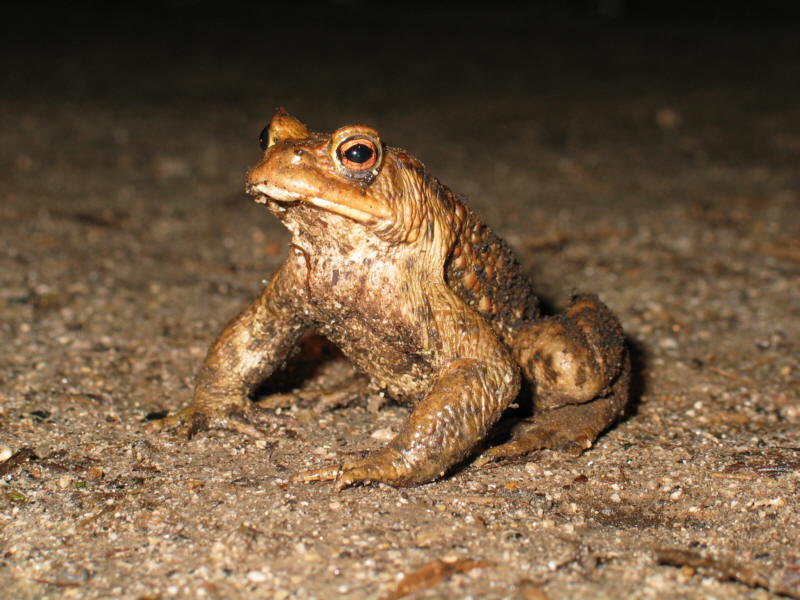
Everyone of them trys to get a female before they reach the pond.
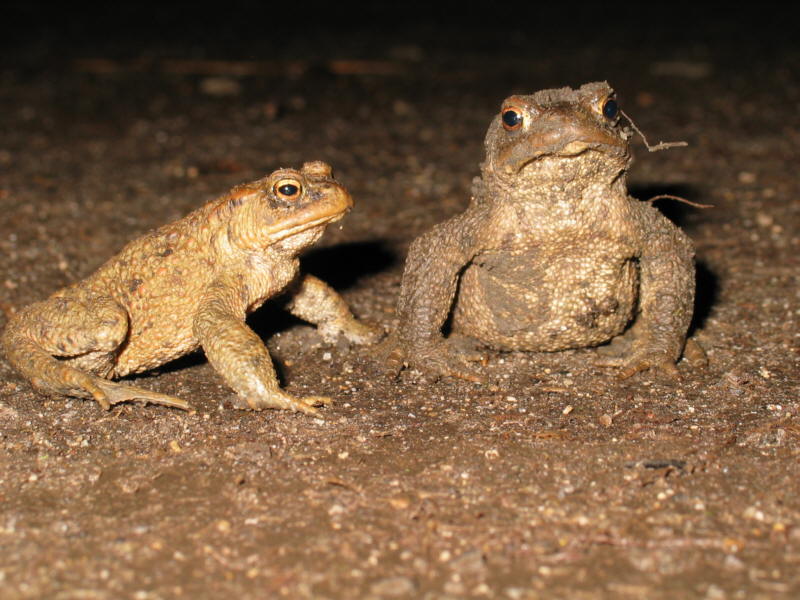
But only two of nearly 100 toads had already luck - 93 lonly males of Bufo
exactly (my daughter counted them).
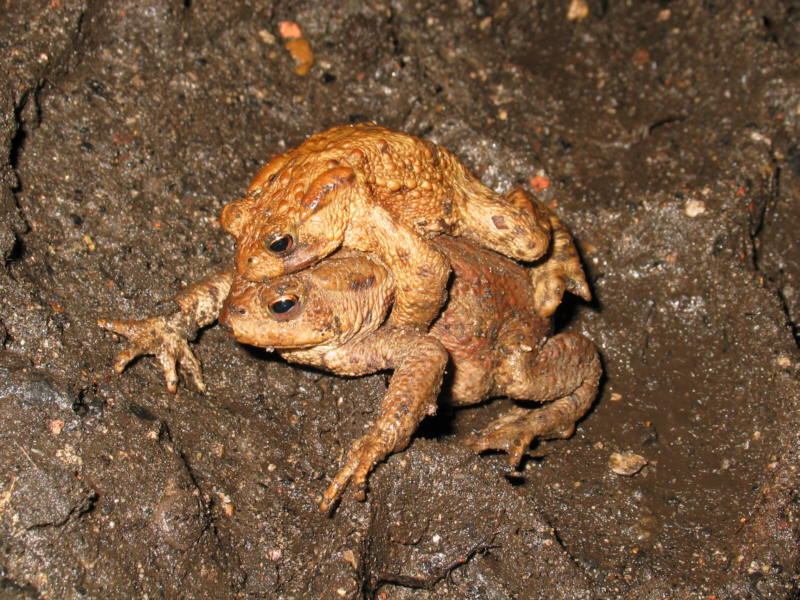
The nearer we came to the pond, so
lesser became the amounts of toads. It is still to early, most of them are
still in migration.
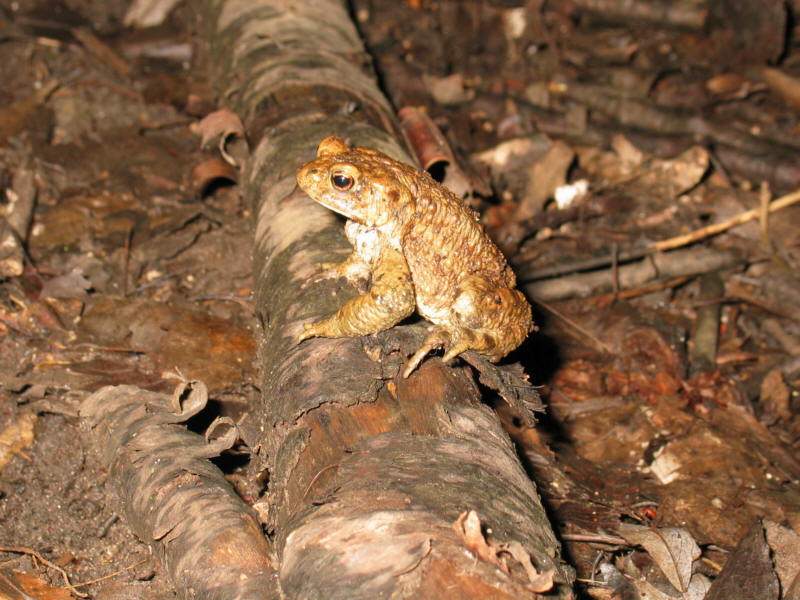
Furherwise the first newts were on migration. Most of them travel, when the
toads are already in the pond.
We saw one common newt (Triturus vulgaris).
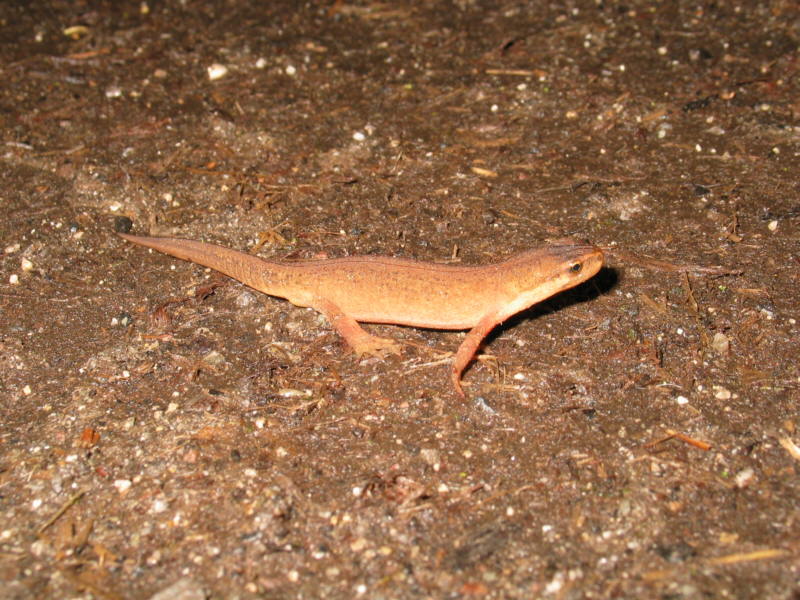
And one alpian newt (Triturus alpestris).
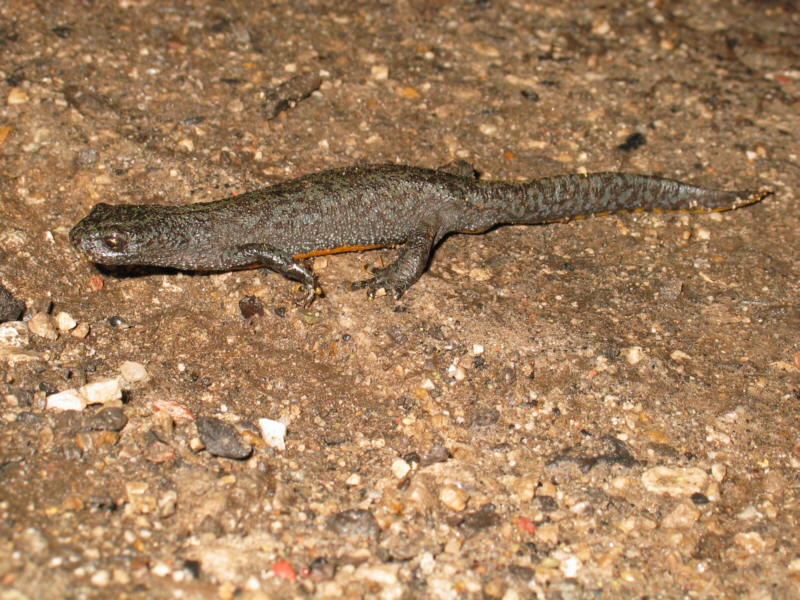
Because of our sucsess this evening we visited on Sunday evening an other
nature-sanctuary in the south of Bochum.
It was dry, no further rainfall during the day.
There near the ponds were not many toads, those one migate still, too. At
last we saw about 40 common toads this evening, most of them again lonly
males. Furthermore one grass frog (Rana temporia) crossed our way - but
this guy "had no time for a picture". Grass frogs breed before the common
toads, their migration should be finished - but maybe the night frost
hamper them.
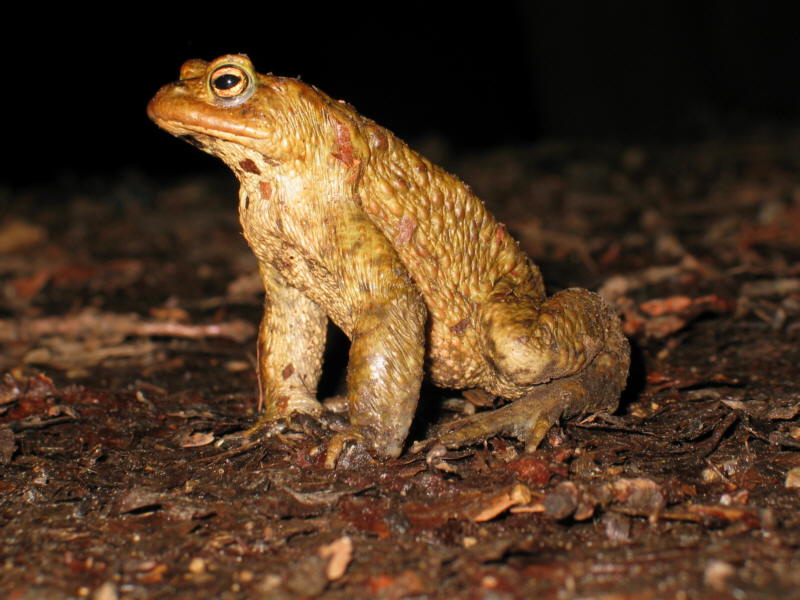
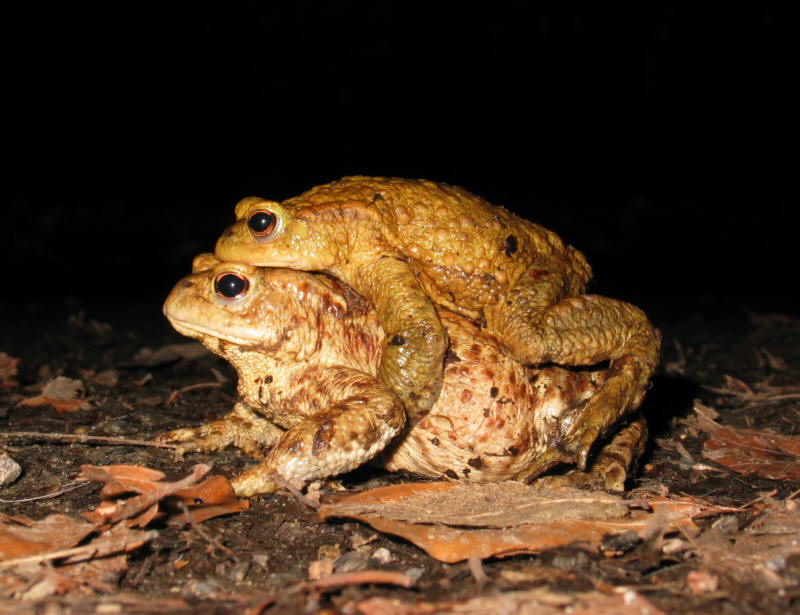
And again one lonly alpian newt passed our way.
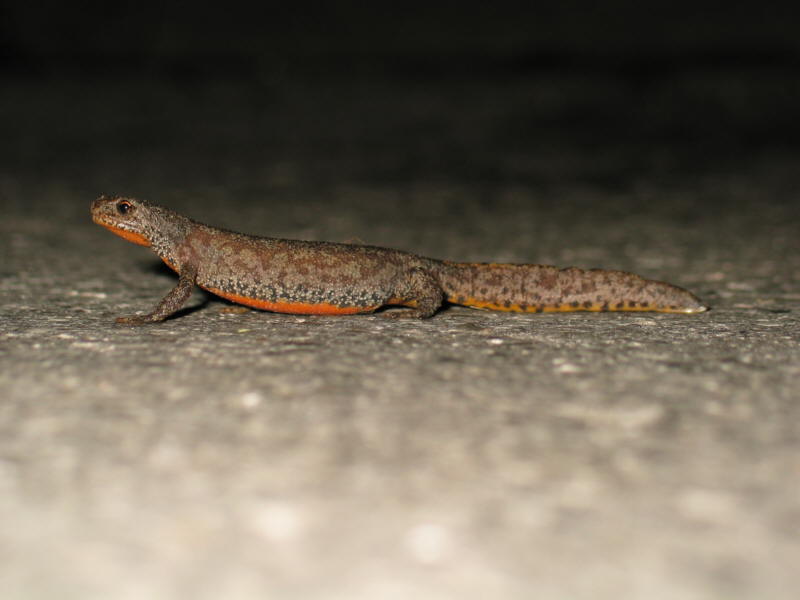
But mainly I choose this habitat, because I rememerd it to be the homerange
of some fire salamanders (Salamandra salamandra terrestris). They do not
migrate in spring, but they are active.
A little diappointed I was, because in 1,5 h we saw not one of them.
But on the way back we had more luck. One of thees guys was out and climbing
on the bark of a tree in about 1/2m height.
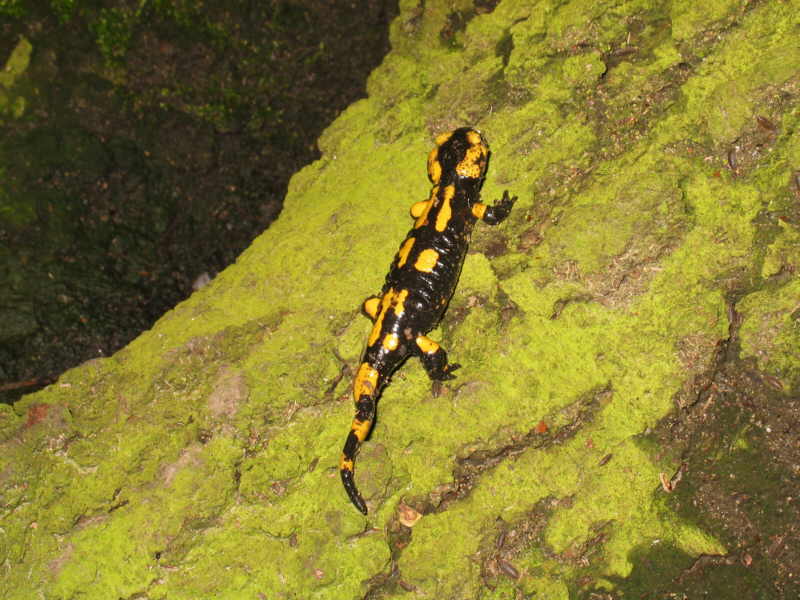
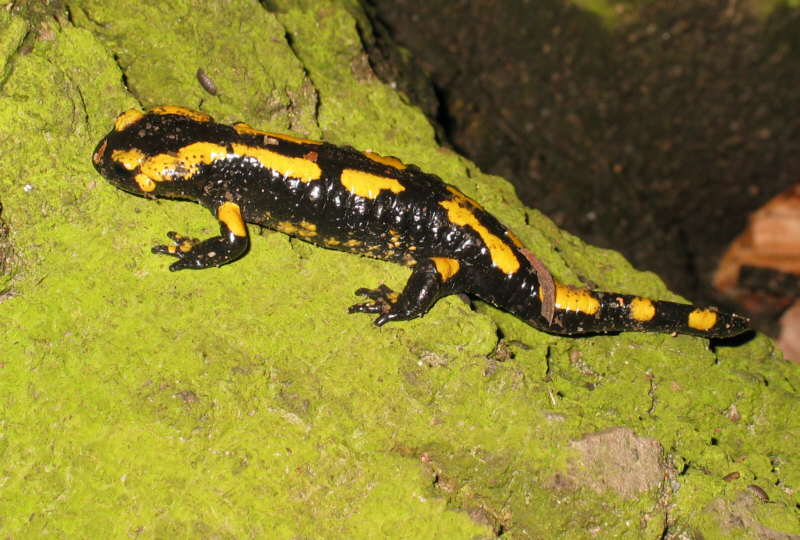
After the disturbance of us, my camera and the flashlight it flew into a
little hole at the root of the tree - so the tree its his "home tree".
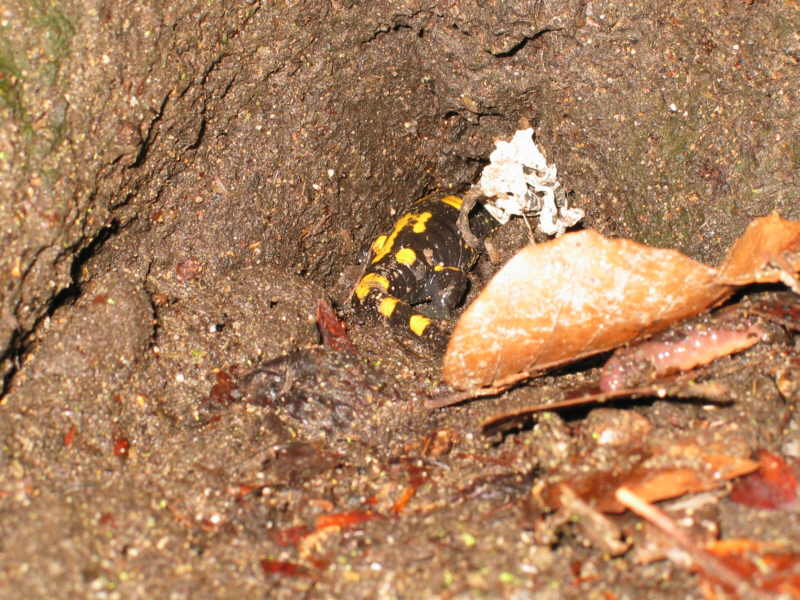
|